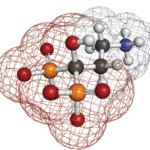Sir William Osler, the father of modern medicine, said “the desire to take medicine is perhaps the greatest feature that separates man from animal.” Determination of the benefit of a medication can be challenging and includes a number of factors, such as pharmacologic activities on the disease pathophysiology, pharmacokinetic properties and patient characteristics.1,2 An additional, often unrecognized or unappreciated, contributor, the placebo effect, also may be extraordinarily important in determining the response to a medication.3
At funerals in the Middle Ages, a common part of the funeral chant used by hired mourners (inauthentic behavior) began with the ninth verse of Psalm 116, Placebo Domino in regione vivorum, which in the Latin Vulgate translation means “I shall please the Lord in the land of the living.” This inauspicious connotation of placebo, representing falsehood, persisted, and the term was subsequently employed medically starting in the late 1700s to describe fake treatments given for a variety of diseases.
In that era of therapeutic adventure and misadventure, the cure—in widespread and unregulated use—was frequently worse than the illness (e.g., major surgery without anesthesia; use of powerful electrical devices). As a result, kinder and gentler interventions were often tried. It was recognized that treatments with inert substances, such as sugar or bread pills, and highly diluted preparations, such as used in homeopathy, could be associated with clinical benefit. Was this effect just the body’s natural healing processes, or was something else involved? Since that time, placebos have been used both therapeutically and as important methodologic tools in research.
Placebo is defined as an inert substance with no measurable biological effect that is used to please an individual rather than to provide a pharmacological effect on a disorder. A placebo group is included in clinical trials to help differentiate pharmaceutical effects of an active intervention from nonpharmaceutical effects resulting from the natural course of disease, inherent healing processes, patient expectations of the treatment, messages conveyed by the doctor and others.3,4
When patients in routine clinical care report that a certain medication is of no value and/or even makes them feel worse, they should not be told the treatment should be efficacious on the basis of reported evidence. The evidence is reported for patient groups, while individual patients often differ widely in responses to treatments or placebos.
Research Says …
Considerable debate and research exists concerning placebo and nocebo (negative placebo) effects in clinical trials involving rheumatic diseases, particularly osteoarthritis (OA), low back pain, depression and fibromyalgia, in which symptoms are affected by neural processing in specific areas of the brain.5-8
